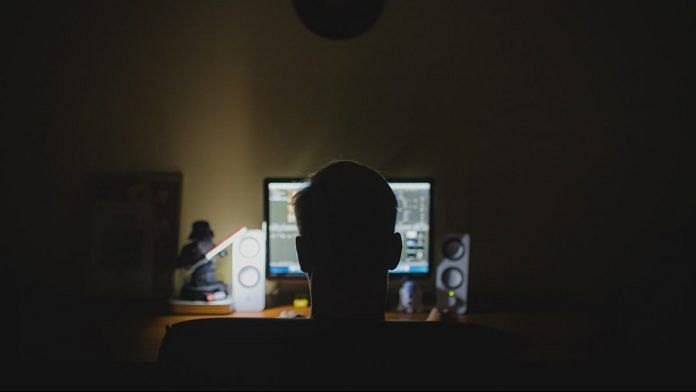Last year when the pandemic hit, I felt my post graduation degree will get delayed.
For a brief moment in my life, it felt like my near future and the future of lakhs of students like me will be bleak. Soon, a system for online classes and exams was set. Thanks to advancing technology, I got done with my exams just in time.
The significant role that technology played in the pre-pandemic era got expanded in unimaginable ways during the unprecedented health crisis. It is technology that did not let the entire economy cripple by maintaining business continuity through work from home.
It is technology that allows people to shop necessities from the comfort of their homes.It is technology that ensures that many students are not wasting years of their life unlearning everything that they had studied. There are many more ways how technology helped people put a full stop to their worries.
Hence, now if one looks at any sphere of life, they will find technology.
How much is too much?
Mahatma Buddha rightly said, “Excessive amount of everything is harmful.” It seems the same goes for technology as well.
While technology is seeping into every part of human lives, it doesn’t necessarily lead them towards progress and betterment. It brings along unprecedented upheavals for human society, which could prove to be disastrous if individuals do not start taking the right steps today.
Ever since its birth, technology has been a cause of worry for humans because of its potential for replacing them in various jobs.
At least humans were assured that AI could never do one thing they could, which is being creative but then the unthinkable happened.
Art pieces by Ai.Da, probably the world’s first AI artist, poems by Google’s algorithm-generated PoemPortraits or music composed by an AI music engine called AIVA and tons of other software, applications, and a few humanoids are slowly taking over the creative world that humans proudly claimed to be theirs.
Ransomware — the digital way of extortion
Humans have always been notorious. Asking for ransom in exchange for releasing the captive is an old trick. Today the ploy is the same, only the captive has changed. It’s the victim’s invaluable data nowadays, access to which is limited by a malicious group of hackers.
They only ask for ransom in return but their not-so-ethical actions may have additional hidden intentions such as leaving behind a tumultuous society, disruption of normal lives or creating political unrest.
In May, when Colonial Pipeline’s data was attacked by a hacker group called Darkside, their major supply of fuel to the East Coast was disrupted for a week causing gas panic-buying, shortages, and price hikes in some states of the US.
It was only after payment of 75 bitcoins the Colonial’s access was restored. Such digital attacks may also become one of the causes of tension between two countries or more like the USA and Russia presently.
Humans overly dependent on technology
Humans now need reminders to do the most basic task of life like drinking water.
They have now come to a point where they take help from technology to maintain a sound sleeping cycle, avoid distractions, make more friends and get more imaginative whereas all these problems are created because of using too much technology in the first place.
There are also apps available that help humans know about how they feel and what emotions they are experiencing. As more and more people become dependent on these apps, their self-awareness, ability to think and process information, and other cognitive skills will diminish.
Yuval Noah Harari, the Israeli historian and author of best-selling books, points out many more serious issues of technology.
He believes new technologies could hijack democracy and even humans’ sense of self. It could create a useless global class of humans that will have to re-educate itself to become useful again, concentrate power in a few hands, create huge class differences or even be a tool for discrimination.
Yes, technology is the future. Yes, technology is the answer to most of our present problems.
The fact that we are in the middle of the world’s worst health crisis makes it even more relevant but if not used in a controlled manner, technology will confront the world with the hardest test of all times.
There are days when I wonder weren’t humans already doing enough for the world to get disrupted?
Global warming, climate change, coups, extremism, pandemic and discrimination, all this is already wreaking havoc around the globe. The last thing we need is a digital authority created by humans to rule over the world.
Sejal Arora is a student of ARSD College, University of Delhi



